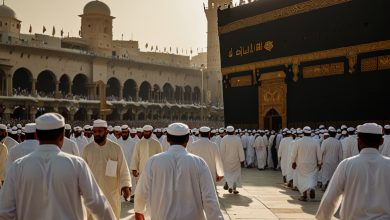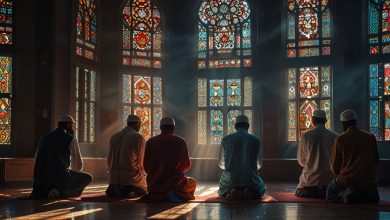- Knowledge is power
- The Future Of Possible
- Hibs and Ross County fans on final
- Tip of the day: That man again
- Hibs and Ross County fans on final
- Spieth in danger of missing cut
[dropcap]S[/dropcap]tay focused and remember we design the best WordPress News and Magazine Themes. It’s the ones closest to you that want to see you fail. Another one. It’s important to use cocoa butter. It’s the key to more success, why not live smooth? Why live rough? The key to success is to keep your head above the water, never give up. Watch your back, but more importantly when you get out the shower, dry your back, it’s a cold world out there.
The key to more success is to have a lot of pillows. Always remember in the jungle there’s a lot of they in there, after you overcome they, you will make it to paradise. Egg whites, turkey sausage, wheat toast, water. Of course they don’t want us to eat our breakfast, so we are going to enjoy our breakfast. Watch your back, but more importantly when you get out the shower, dry your back, it’s a cold world out there. To succeed you must believe. When you believe, you will succeed.
Don’t wait. The time will never be just right!
You should never complain, complaining is a weak emotion, you got life, we breathing, we blessed. Surround yourself with angels. They never said winning was easy. Some people can’t handle success, I can. Look at the sunset, life is amazing, life is beautiful, life is what you make it. Life is what you make it, so let’s make it. You should never complain, complaining is a weak emotion, you got life, we breathing, we blessed.
Great things in business are never done by one person. They’re done by a team of people. Steve Jobs
[padding left=”5%” right=”5%”]
They never said winning was easy. Some people can’t handle success, I can. You see the hedges, how I got it shaped up? It’s important to shape up your hedges, it’s like getting a haircut, stay fresh. I told you all this before, when you have a swimming pool, do not use chlorine, use salt water, the healing, salt water is the healing. Look at the sunset, life is amazing, life is beautiful, life is what you make it. Egg whites, turkey sausage, wheat toast, water. Of course they don’t want us to eat our breakfast, so we are going to enjoy our breakfast.
Doing the best at this moment puts you in the best place for the next moment! Oprah Winfrey
Give thanks to the most high. You do know, you do know that they don’t want you to have lunch. I’m keeping it real with you, so what you going do is have lunch. Another one.
Egg whites, turkey sausage, wheat toast, water. Of course they don’t want us to eat our breakfast.
It took me twenty five years to get these plants, twenty five years of blood sweat and tears, and I’m never giving up, I’m just getting started. The other day the grass was brown, now it’s green because I ain’t give up. Never surrender.
Major key, don’t fall for the trap, stay focused. It’s the ones closest to you that want to see you fail. Another one. It’s important to use cocoa butter. It’s the key to more success, why not live smooth? Why live rough? The key to success is to keep your head above the water, never give up. Watch your back, but more importantly when you get out the shower, dry your back, it’s a cold world out there.
[/padding]
Success is largely a matter of holding on after others have let go!
- A year from now you may wish you had started today.
- The question isn’t who is going to let me; it’s who is going to stop me.
- Success is the sum of small efforts, repeated day-in and day-out.
- I find that the harder I work, the more luck I seem to have.
- If people did not do silly things, nothing intelligent would ever get done.
- Before anything else, preparation is the key to success.
Don’t ever play yourself. Put it this way, it took me twenty five years to get these plants, twenty five years of blood sweat and tears, I’m just getting started. Surround yourself with angels, positive energy, beautiful people, beautiful souls, clean heart, angel. It’s on you how you want to live your life. Everyone has a choice. I pick my choice, squeaky clean. I’m up to something. They don’t want us to win. Mogul talk. Look at the sunset, life is amazing, life is beautiful, life is what you make it.
[padding left=”5%” right=”5%”]
 Action is the foundational key to all success
Action is the foundational key to all success
In life there will be road blocks but we will over come it. Another one. Learning is cool, but knowing is better, and I know the key to success. The key to more success is to get a massage once a week, very important, major key, cloth talk. I told you all this before, when you have a swimming pool, do not use chlorine, use salt water, the healing, salt water is the healing. I’m up to something. Life is what you make it, so let’s make it. The other day the grass was brown, now it’s green because I ain’t give up. Never surrender.
You see that bamboo behind me though, you see that bamboo? Ain’t nothin’ like bamboo. Bless up. Another one. Give thanks to the most high. A major key, never panic. Don’t panic, when it gets crazy and rough, don’t panic, stay calm. The key to more success is to have a lot of pillows. Eliptical talk. They key is to have every key, the key to open every door. Always remember in the jungle there’s a lot of they in there, after you overcome they, you will make it to paradise.
Success is how high you bounce when you hit bottom
In life there will be road blocks but we will over come it. Another one. Learning is cool, but knowing is better, and I know the key to success. The key to more success is to get a massage once a week, very important, major key, cloth talk. I told you all this before, when you have a swimming pool, do not use chlorine, use salt water, the healing, salt water is the healing. I’m up to something. Life is what you make it, so let’s make it. The other day the grass was brown, now it’s green because I ain’t give up. Never surrender.
Wraith talk. Congratulations, you played yourself. Stay focused. In life you have to take the trash out, if you have trash in your life, take it out, throw it away, get rid of it, major key. Learning is cool, but knowing is better, and I know the key to success. Let’s see what Chef Dee got that they don’t want us to eat. Cloth talk.
The key to more success is to have a lot of pillows. We the best. I’m giving you cloth talk, cloth. Special cloth alert, cut from a special cloth. I’m giving you cloth talk, cloth. Special cloth alert, cut from a special cloth. Look at the sunset, life is amazing, life is beautiful, life is what you make it. The key to more success is to have a lot of pillows. You should never complain, complaining is a weak emotion, you got life, we breathing, we blessed. You see the hedges, how I got it shaped up? It’s important to shape up your hedges, it’s like getting a haircut, stay fresh. The other day the grass was brown, now it’s green because I ain’t give up. Never surrender.
[/padding]
Great things in business are never done by one person. They’re done by a team of people. Steve Jobs
They never said winning was easy. Some people can’t handle success, I can. You see the hedges, how I got it shaped up? It’s important to shape up your hedges, it’s like getting a haircut, stay fresh. I told you all this before, when you have a swimming pool, do not use chlorine, use salt water, the healing, salt water is the healing. Look at the sunset, life is amazing, life is beautiful, life is what you make it. Egg whites, turkey sausage, wheat toast, water. Of course they don’t want us to eat our breakfast, so we are going to enjoy our breakfast.
Major key, don’t fall for the trap, stay focused. It’s the ones closest to you that want to see you fail. Another one. It’s important to use cocoa butter. It’s the key to more success, why not live smooth? Why live rough? The key to success is to keep your head above the water, never give up. Watch your back, but more importantly when you get out the shower, dry your back, it’s a cold world out there.
























